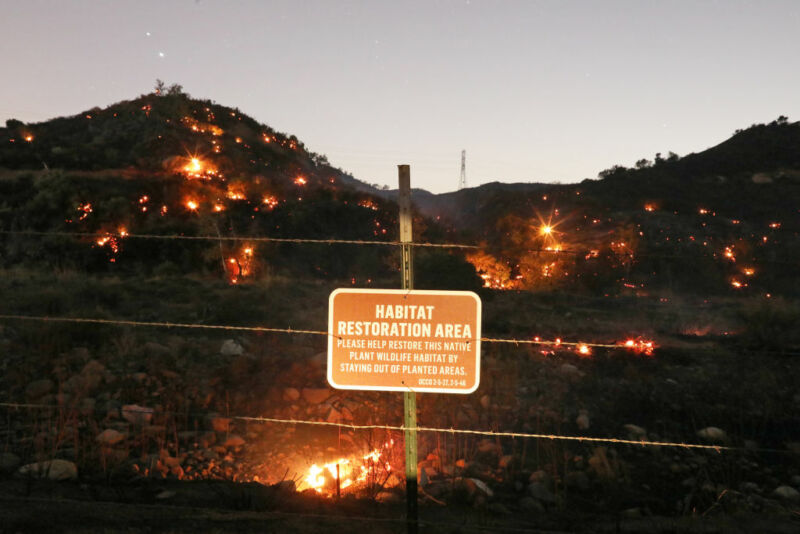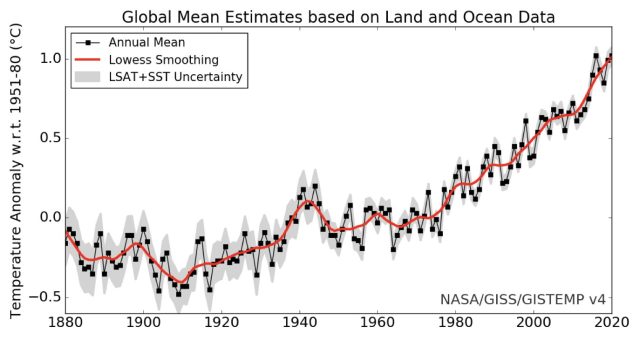2020 ties 2016 as the warmest year on record

Enlarge / Intense wildfires were one of the climate impacts linked to the recent string of very hot years. (credit: Bloomberg/Getty Images)
Today, NASA and NOAA are announcing that 2020 was one for the record books, tying with 2016 for the warmest year since we've been tracking temperatures. NASA rates 2020 as the warmest ever, although by a margin that's not large enough to reach statistical significance; NOAA reverses the order, also without a significant difference between the two years. Whatever its precise rank, 2020 was the continuation of a worrying trend-the past seven years are all on the list of the seven warmest years on record, regardless of which source you turn to for your global temperatures.

While there is a lot of year-to-year variability (black), the overall trend (red) is hard to miss. (credit: NASA)
Another reason for concern is that 2020 saw the El Nino-Southern Oscillation (ENSO) in a state that, in the absence of human-driven climate change, would have produced relatively cool conditions. NASA's Gavin Schmidt said that, in the absence of the influence of the ENSO, 2020 would have been the warmest year on record. As shown in the chart below, strong El Nino years tend to be associated with warm records, while the cycle's opposing conditions, called La Nina, are typically associated with cooler conditions. 2016 was notable for having the strongest El Nino since the 1990s, an event that pushed temperatures far above the baseline where they'd spent most of the start of the century.
Since then, the ENSO has been largely stuck in neutral, shifting back and forth between weak El Ninos and La Nina tendencies. Temperatures dropped slightly, but not back to the conditions that were typical of the decade prior. 2020 saw temperatures match those of 2016's strong El Nino despite remaining stuck in neutral. "The previous record warm year, 2016, received a significant boost from a strong El Nino," Schmidt said in a statement. "The lack of a similar assist from El Nino this year is evidence that the background climate continues to warm due to greenhouse gases."
Read 6 remaining paragraphs | Comments